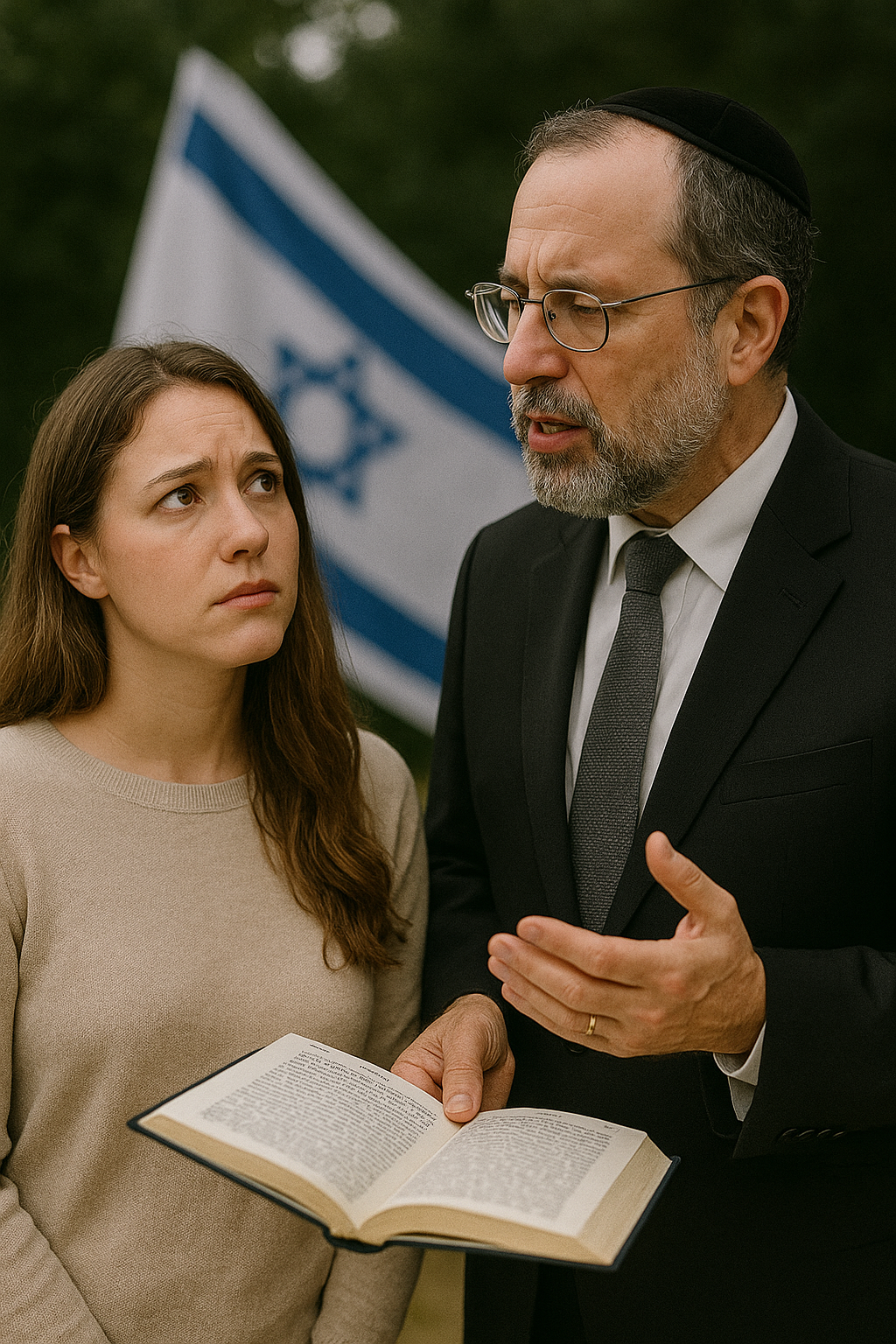Conversion Controversy: From Questioned Authenticity to Accepted Citizenship
Case Study: David Kimura, Age 36, Japan
Background
David Kimura grew up in Tokyo, Japan, in a strictly secular household with no religious affiliation. In his late twenties, while working for an international company, he developed a deep interest in Judaism after befriending several Jewish colleagues. This interest grew into a spiritual connection that led him to begin studying with a Reform rabbi who occasionally visited Tokyo to serve the small expatriate Jewish community.
After two years of study, David underwent a Reform conversion ceremony in Singapore, as there was no permanent rabbi in Tokyo at that time. He adopted Jewish practices, learned Hebrew, and became an active member of the small Jewish community in Tokyo. Three years after his conversion, David decided to make aliyah to deepen his Jewish identity and fully immerse himself in Jewish life.
The Challenge
When David applied for aliyah, he encountered significant obstacles:
His Reform conversion was performed outside Israel by a rabbi who was not recognized by Israel's Chief Rabbinate
The conversion process had been shortened due to the logistical challenges of studying in Japan
There were questions about the authenticity of his Jewish commitment as a convert from a non-Jewish background with no family connections to Judaism
His conversion documentation was deemed insufficient by the Ministry of Interior
He had no established Jewish community in Israel to vouch for him
The rabbinical authorities in Israel questioned whether his conversion met the necessary standards
The Jewish Agency initially rejected his application, stating his conversion did not meet their criteria for recognition.
Precedent Case: The Rosenthal Decision (2021)
David's situation closely resembled the landmark "Rosenthal Decision" of 2021, which involved Jennifer Rosenthal, an American who had undergone a non-Orthodox conversion in the United States. The Israeli Supreme Court ruled that individuals who underwent non-Orthodox conversions abroad were eligible for Israeli citizenship under the Law of Return.
The ruling stated: "The Law of Return recognizes the pluralistic nature of contemporary Jewish identity. While religious authorities may maintain their own standards for religious purposes, the State of Israel acknowledges diverse paths to Jewish identity for citizenship purposes. Sincere conversion performed by established Jewish communities worldwide, regardless of denomination, meets the requirement of the Law of Return."
Resolution Process
Following the rejection of his initial application, David's attorney cited the Rosenthal Decision and initiated an appeal process that included:
Gathering detailed documentation of his conversion process including syllabi, study materials, and attendance records
Obtaining additional letters from Jewish community leaders in Tokyo and Singapore attesting to his commitment
Demonstrating his ongoing Jewish practice through documentation of holiday observances, Sabbath participation, and community involvement
Providing a portfolio of his Hebrew studies and Jewish knowledge
Securing statements from Israeli citizens who had met him during their visits to Japan and could attest to his Jewish lifestyle
Undergoing interviews with representatives from various Jewish denominations in Israel to demonstrate his knowledge and commitment
Throughout this process, David continued his Jewish studies and even visited Israel as a tourist to strengthen his connections with the country and its people.
Outcome
After an 18-month appeal process, the Ministry of Interior reversed its decision and approved David's aliyah application, citing the Rosenthal precedent. The approval noted: "While the applicant's conversion does not conform to Orthodox standards, it meets the criteria established by the Supreme Court for recognition under the Law of Return. The applicant has demonstrated genuine commitment to Jewish life and identity that extends well beyond the formal conversion process."
David successfully made aliyah in 2023 and settled in Tel Aviv. He has continued his Jewish education with both Reform and Conservative communities, works as an IT specialist, and volunteers with an organization that helps other converts navigate the aliyah process. He reports feeling fully at home in Israel and has built a strong community of friends who respect his journey to Judaism.
Key Principles Established
This case reinforced several important principles regarding aliyah approval for converts:
Non-Orthodox conversions performed outside Israel can be valid for citizenship purposes under the Law of Return
The sincerity and continuity of Jewish practice after conversion is a significant factor
Knowledge of Jewish traditions, customs, and Hebrew demonstrates genuine commitment
Community involvement and recognition support the authenticity of a conversion
The Law of Return acknowledges diverse paths to Jewish identity while respecting established processes
The Israeli legal system recognizes Jewish pluralism for citizenship purposes, even while religious authorities maintain their own standards
Converts with no prior connection to Judaism can establish genuine Jewish identity through study and practice
David's case is now referenced by Jewish Agency representatives and legal advisors working with converts seeking to make aliyah, particularly those who converted through non-Orthodox movements outside Israel.


